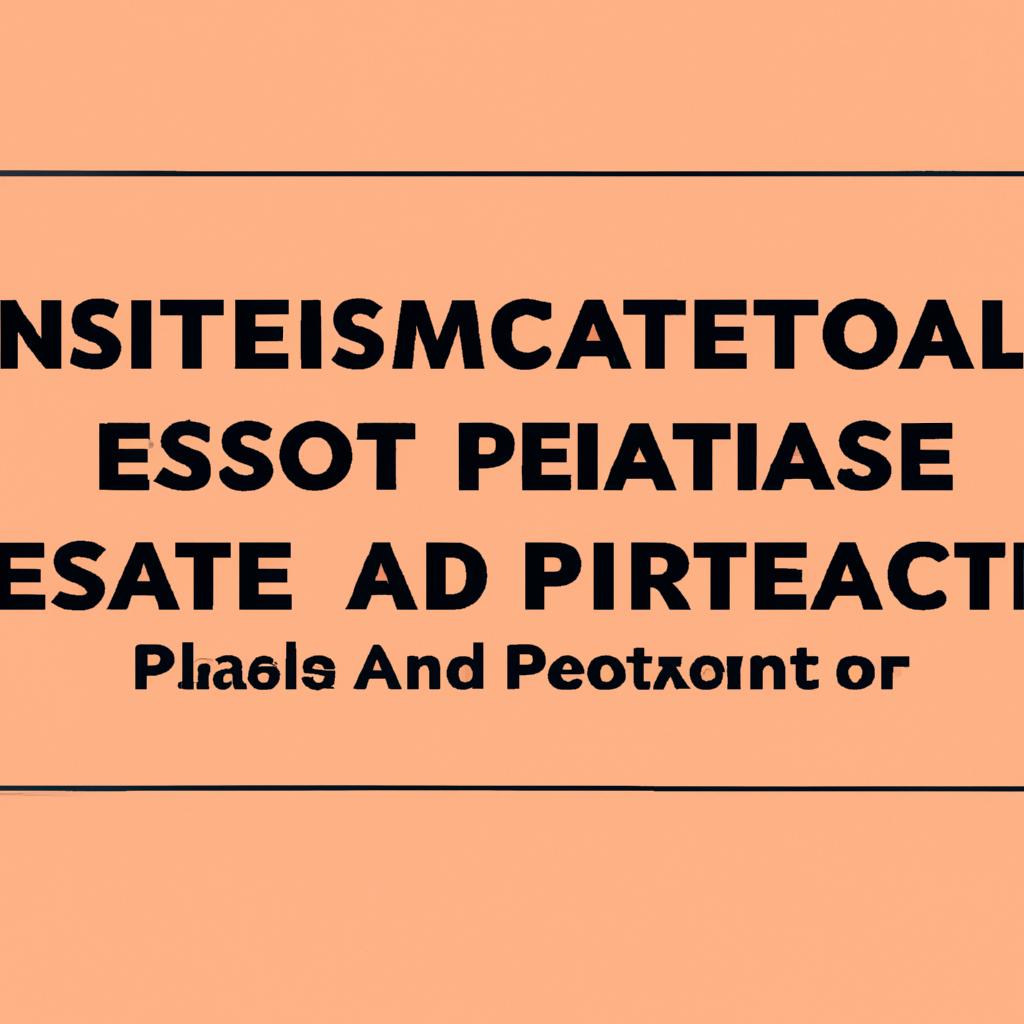Avoiding Probate: Understanding How Certain Assets Can Streamline Estate Planning
The process of distributing an individual’s assets after their passing can be complex and lengthy, often going through the probate process. However, there are specific types of assets that can bypass probate altogether, making the transition of wealth to the beneficiaries much smoother. In this article, we will explore the assets from an estate that can avoid probate, shedding light on how to navigate this aspect of estate planning with ease.
Assets Held in a Trust Before Passing
Assets held in a trust before an individual’s passing can avoid probate. This is because when assets are held in a trust, they are technically owned by the trust itself rather than the individual. Therefore, these assets do not need to go through the probate process, saving time and potentially reducing estate taxes.
Using a trust to hold assets allows for a smooth transfer of wealth to beneficiaries without the need for court involvement. This provides peace of mind to the individual, knowing that their assets will be distributed according to their wishes in a private manner.
Jointly Owned Property with Rights of Survivorship
In the event of an individual’s passing, assets jointly owned with rights of survivorship can avoid probate. This means that the ownership of these assets automatically transfers to the surviving owner(s) without the need for a court process. Jointly owned bank accounts and real estate with rights of survivorship are examples of how assets can be transferred without the need for probate.
By designating beneficiaries on retirement accounts and life insurance policies, individuals can ensure that these assets are efficiently passed on to their loved ones without getting tied up in probate. It is important to regularly review and update these designations to reflect any changes in circumstances or relationships.
Transfer-on-Death or Payable-on-Death Accounts and Deeds
Transfer-on-death (TOD) or payable-on-death (POD) accounts and deeds are beneficial mechanisms for passing on assets outside of probate. By designating beneficiaries on these accounts or deeds, the assets held within are able to bypass the probate process and be transferred directly to the chosen individual(s) upon the account holder’s death. Assets that can be designated as TOD or POD include bank accounts, investment accounts, real estate, and vehicles. Properly setting up these arrangements can provide greater control over how assets are distributed and avoid potential complications that may arise during the probate process.
To Conclude
Understanding which assets from an individual’s estate can avoid probate is essential for proper estate planning. By taking the necessary steps to ensure certain assets are transferred outside of the probate process, individuals can help streamline the distribution of their estate and potentially reduce costs and delays for their heirs. It is important to consult with a knowledgeable estate planning attorney to explore all options and create a comprehensive plan that best suits your individual needs and circumstances. By doing so, you can help ensure that your assets are distributed according to your wishes and provide peace of mind for yourself and your loved ones.

Which Individual’s Estate Assets Can Avoid Probate at Passing?
Probate is the legal process of administering a deceased person’s estate, resolving any claims, and distributing the assets to the beneficiaries. It can be a time-consuming and costly process that many individuals and families want to avoid. Fortunately, there are ways to ensure that certain assets can pass without going through probate. Here are some key factors to consider:
Assets Held in Joint Tenancy
Assets held in joint tenancy with rights of survivorship automatically pass to the surviving joint tenant(s) upon the death of one of the owners. This means that these assets do not need to go through probate and can be transferred directly to the designated beneficiaries. Common examples of assets held in joint tenancy include real estate, bank accounts, and vehicles.
| Assets Held in Joint Tenancy | Pass without Probate |
|---|---|
| Real Estate | Yes |
| Bank Accounts | Yes |
| Vehicles | Yes |
Assets with Designated Beneficiaries
Assets such as retirement accounts, life insurance policies, and payable-on-death (POD) bank accounts allow the owner to designate beneficiaries who will receive the assets upon their passing. These assets do not need to go through probate as long as there are designated beneficiaries in place. It is important to keep these designations up to date to ensure a smooth transfer of assets.
Revocable Living Trust
Creating a revocable living trust allows individuals to transfer their assets into the trust during their lifetime. Upon passing, the assets held in the trust can be distributed to the beneficiaries without going through probate. This can help save time and money for the estate and provide more privacy for the beneficiaries.
Overall, by understanding the different ways to avoid probate for certain assets, individuals can plan ahead to ensure a smooth transition of their estate to their loved ones. Consult with a qualified estate planning attorney to learn more about how to set up these arrangements and benefit from the process.
Benefits and Practical Tips
- Save time and money by avoiding probate
- Ensure a smooth transition of assets to beneficiaries
- Review and update designated beneficiaries regularly
- Consider creating a revocable living trust for added protection
Case Studies
Here are some real-life examples of individuals who were able to avoid probate by utilizing the strategies mentioned above:
- John and Mary held their house in joint tenancy, allowing the property to pass to the surviving spouse without probate.
- Sarah designated her children as beneficiaries on her retirement account, avoiding the need for probate proceedings.
- David established a revocable living trust to transfer his assets, ensuring a private and efficient distribution to his heirs.
By following these examples and implementing these strategies, individuals can protect their assets and provide for a seamless transition of their estate to their beneficiaries.


